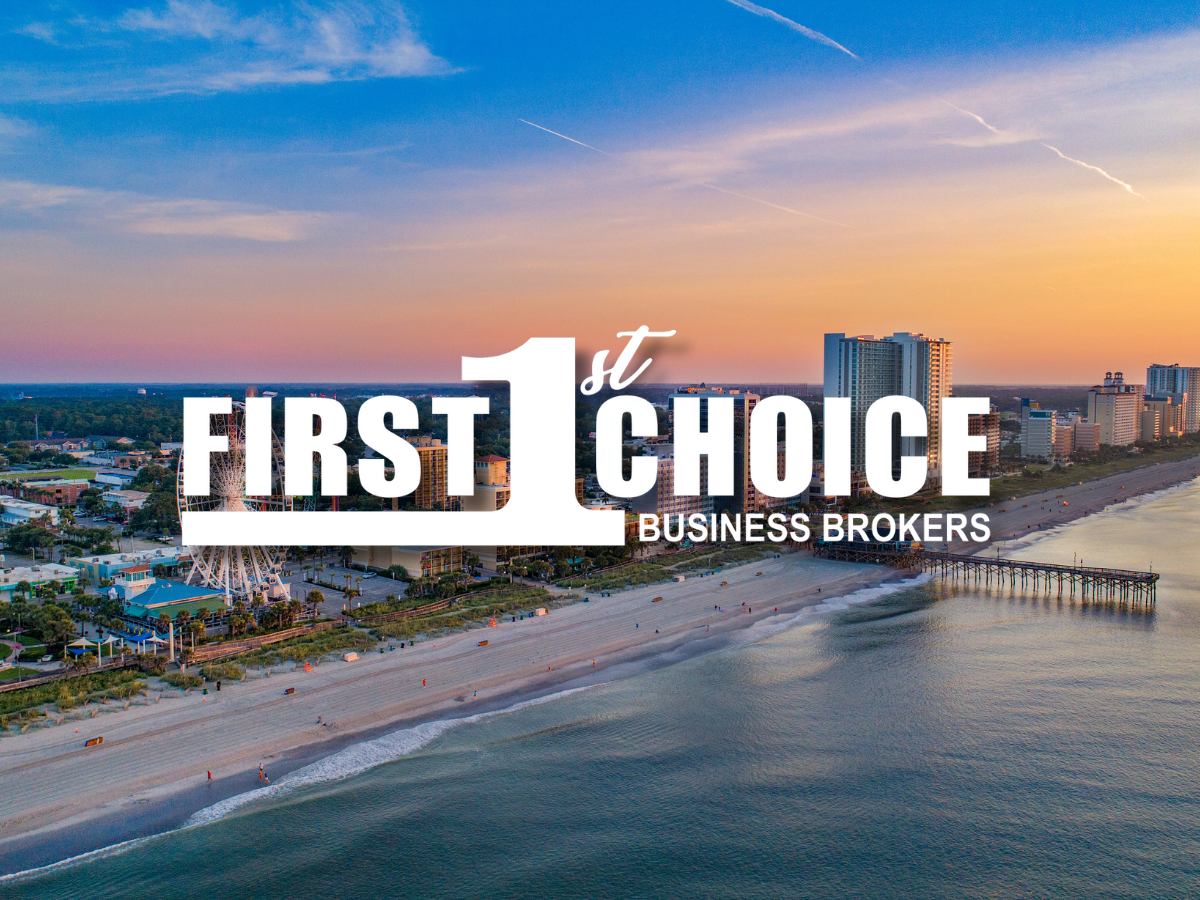Understand How Seasonal Branding Impacts Business Positioning
Nestled along the coast of South Carolina, Myrtle Beach stands out as a captivating blend of sandy beaches, golf courses, and a bustling hub of commerce. This distinctive setting gives rise to a market that's influenced as much by the seasonal ebb and flow of tourists as by its year-round residents. As
businesses in the area grapple with these unique market dynamics, they discover an arsenal in the realm of seasonal branding. It's not merely about aligning with holidays or capitalizing on summer surges; it's a strategic maneuver that positions a business optimally, especially when contemplating a sale. Recognizing and harnessing the nuances of seasonal branding can make the difference between a business that's just on the market and one that's sought-after. As we delve deeper into the intricacies of
selling a business in Myrtle Beach, we'll explore the symbiotic relationship between understanding market dynamics and the impactful role of seasonal branding.
The Myrtle Beach Market Landscape:
Myrtle Beach, often dubbed the "Grand Strand", isn't just a vacationer's paradise; it's a dynamic marketplace characterized by a few distinct features.
- Seasonal Influx of Tourists: Each year, Myrtle Beach welcomes millions of tourists, predominantly during the summer months. This seasonal influx dramatically influences local businesses, causing a surge in demand for many products and services. It's a cyclical boom that businesses anticipate, gearing up for the 'high season' and strategizing to maintain momentum during the quieter months.
- Diverse Demographics: While Myrtle Beach is home to a vibrant local community, the tourists bring in a melting pot of demographics – from families on a beach vacation to golf enthusiasts and retirees. This diverse clientele presents both a challenge in catering to varied preferences and an opportunity to expand offerings and reach a wider audience.
- Competitive Real Estate and Business Landscape: The attractiveness of Myrtle Beach as a destination has led to a dense commercial environment. Hotels, restaurants, entertainment hubs, and retail outlets are in constant competition, vying for the attention of both locals and tourists.
- Local Events and Festivals: Beyond the beach and golf, Myrtle Beach hosts a slew of events and festivals, from bike weeks to music festivals. These events, though periodic, drive significant traffic and demand, allowing businesses to tap into niche audiences.
- Environmental Considerations: Myrtle Beach's coastal location means businesses must consider environmental factors, like hurricanes or coastal erosion, which can impact operations and logistics.
Navigating the Myrtle Beach market is akin to sailing its coastal waters – it requires understanding the tides (seasonal dynamics), recognizing the diverse marine life (varied clientele), and being prepared for the occasional storm (challenges). But for those who master these nuances, the opportunities are as vast and rewarding as the ocean itself. Whether you're an established entity or a budding entrepreneur, understanding this landscape is crucial to carving out a successful niche in Myrtle Beach's vibrant commercial tapestry.
Understanding Market Dynamics When Selling a Business
In the realm of business sales, the adage "knowledge is power" rings particularly true. Understanding market dynamics is not just about knowing the ebb and flow of demand and supply; it's about comprehending how these dynamics can influence a business's valuation and the buyer's perception.
1. Business Valuation and Market Dynamics
Valuation isn't just crunching numbers based on profits and assets. It's an intricate dance where market dynamics play a pivotal role. In Myrtle Beach, for instance, a business that thrives during the tourist season but lags in off-peak times might still have a strong valuation due to its potential earnings during those peak months. Conversely, a business that consistently performs all year might be perceived as more stable. Understanding these dynamics ensures sellers can position their businesses in the best light and buyers can appreciate the potential returns on their investment.
2. External Factors Influencing Buyers
While internal business operations, profitability, and growth projections are vital, external factors, often rooted in market dynamics, can sway buyer interest. Consider factors such as upcoming infrastructure projects in Myrtle Beach that might boost tourism or proposed regulatory changes affecting local businesses. A savvy buyer will always have an eye on these external elements as they forecast future profitability and assess risks.
3. Purchasing Decisions and Market Pulse
A buyer's decision isn't made in isolation. It's influenced by the pulse of the market. Seasonal trends, competitive landscape, demographic shifts, and even cultural events can either bolster a business's appeal or raise red flags. Sellers, armed with knowledge about these market intricacies, can preemptively address concerns or highlight strengths, guiding the narrative during negotiations.
In conclusion, selling a business isn't just a transaction; it's a strategic play where understanding market dynamics can significantly tip the scales. For both sellers and buyers in Myrtle Beach, a deep dive into these dynamics ensures informed decisions, fair valuations, and successful transitions.
Unraveling the Power of Seasonal Branding
In the vast world of branding, there lies a dynamic and adaptive subset known as seasonal branding. This approach, while nuanced, has the power to transform a business's relationship with its audience, especially in markets like Myrtle Beach with its palpable seasonal shifts.
1. What is Seasonal Branding?
At its core, seasonal branding is the practice of tailoring a business's branding efforts to align with specific seasons, holidays, or events. It's not just about changing the color palette to fit a festive theme; it's about resonating with the zeitgeist of the moment. Whether it's tapping into the summer beach vibe, the festive winter holidays, or local events and festivals, seasonal branding allows businesses to remain fresh, relevant, and in sync with their audience's current mood and preferences.
2. The Significance in Capturing Customer Attention
In an era where customers are bombarded with a myriad of branding messages daily, seasonal branding stands out as a beacon of relevance. It tells the customer, "We understand what you're feeling right now." In Myrtle Beach, for instance, a café transitioning its theme and menu to cater to summer tourists sends a clear message of adaptability and customer-centricity.
3. Driving Sales with Seasonal Branding
It's not just about aesthetics or resonance; it's about the bottom line. Seasonal branding can be a potent sales driver. Special promotions during the high tourist season, limited-time offers aligned with local events, or simply tweaking the product or service lineup to fit the season can lead to increased footfalls and sales. It gives businesses an edge and a reason for customers to choose them over competitors.
In essence, seasonal branding is like the changing tides of Myrtle Beach. It's dynamic, it's powerful, and when harnessed correctly, it can be the tide that lifts all boats, leading to enhanced customer engagement and robust sales growth.
- Seasonal Branding and Its Impact on Business Positioning in Myrtle Beach - Seasonal branding isn't just a tactic; it's a strategy that can significantly bolster a business's positioning, especially in a market as seasonally influenced as Myrtle Beach. Let's delve into its impact by looking at real-world examples and its potential allure for buyers.

1. Real-life Examples in Myrtle Beach
- Beachwear Stores: Many beachwear retailers in Myrtle Beach employ seasonal branding by launching exclusive summer collections with designs reflecting the local culture. As fall approaches, these same stores introduce cozy beach-themed apparel, keeping in step with the season yet retaining the beach vibe.
- Local Cafés and Restaurants: Some eateries in Myrtle Beach adopt a dual strategy. They serve fresh seafood specials during the peak tourist season, capitalizing on the summer beach spirit. When winter sets in, these menus shift, introducing warm, comforting dishes, often with a holiday twist, appealing to both locals and off-season visitors.
2. Enhancing Business Appeal for Potential Buyers
Seasonal branding, when executed well, speaks volumes about a business's adaptability and understanding of its audience. For potential buyers, especially in a market like Myrtle Beach, this holds significant value for several reasons:
- Revenue Consistency: A business that leverages seasonal branding effectively often has a more consistent revenue stream, as it capitalizes on various seasonal opportunities throughout the year, rather than relying heavily on just one peak season.
- Customer Loyalty: Businesses that resonate with their customers' current sentiments, needs, and preferences tend to foster stronger brand loyalty. For buyers, this translates to a more stable and engaged customer base.
- Brand Flexibility: A business that has successfully employed seasonal branding demonstrates its ability to innovate and adapt. This brand flexibility can be a strong selling point for potential buyers, indicating the brand's potential to evolve with changing market dynamics.
Seasonal branding, especially in a diverse market like Myrtle Beach, isn't merely about aesthetics or promotions. It's a strategic tool that, when wielded astutely, can position a business as adaptable, customer-centric, and future-ready, making it highly attractive to discerning buyers.
Expert Tips: Effectively Using Seasonal Branding When Selling Your Business
Leveraging seasonal branding when positioning your business for sale requires finesse. Here are some expert strategies to maximize its impact and ensure a solid ROI:
1. Consistency is Key:
While seasonal branding means adapting to changing times, maintaining brand consistency is crucial. Your core brand values and identity should remain evident, even as you incorporate seasonal elements.
2. Engage with Authenticity:
Customers can spot inauthentic branding a mile away. Dive into seasonal branding by genuinely understanding and appreciating the essence of the season or event. Avoid generic or clichéd branding campaigns.
3. Analyze Past Campaigns:
Before launching a new seasonal branding effort, review past campaigns. Identify what worked, and what didn't, and refine your strategy based on these insights.
4. Integrate Across Channels:
Ensure that your seasonal branding is integrated across all marketing channels – from in-store displays to online campaigns and social media.
5. Avoid Overcommercialization:
While the aim is to boost sales, avoid making your seasonal branding overly commercial. Instead, focus on building connections and fostering customer relationships.
6. Monitor and Adjust:
Finally, keep an eye on the metrics. Regularly monitor the performance of your seasonal branding campaigns, and be ready to tweak or adjust based on real-time feedback.
By strategically employing these tips, businesses can avoid common pitfalls of seasonal branding and ensure it serves as a powerful tool when positioning their venture for sale, thereby maximizing the appeal to potential buyers.
Conclusion
Navigating the vibrant and ever-evolving Myrtle Beach market demands more than just business acumen; it requires an intimate understanding of its unique market dynamics. The ebb and flow of tourist seasons, coupled with the local sentiment, create a mosaic of opportunities and challenges. Layered within this complex landscape is the power of seasonal branding — a dynamic tool that not only captures the zeitgeist of the moment but also resonates deeply with the audience.
When skillfully intertwined, a keen awareness of market dynamics and adept seasonal branding can significantly elevate a business's positioning. This combination not only enhances the current value proposition but also paints a compelling picture for potential buyers, signaling adaptability, relevance, and foresight.
For sellers in Myrtle Beach, this duo — market understanding and seasonal branding — is the ace up their sleeve, the secret sauce that can make their business stand out, appealing to discerning buyers and promising a prosperous future.
Frequently Asked Questions
*By addressing these FAQs, businesses in Myrtle Beach can harness the combined power of market dynamics and seasonal branding, enhancing their appeal and positioning when looking to sell.







